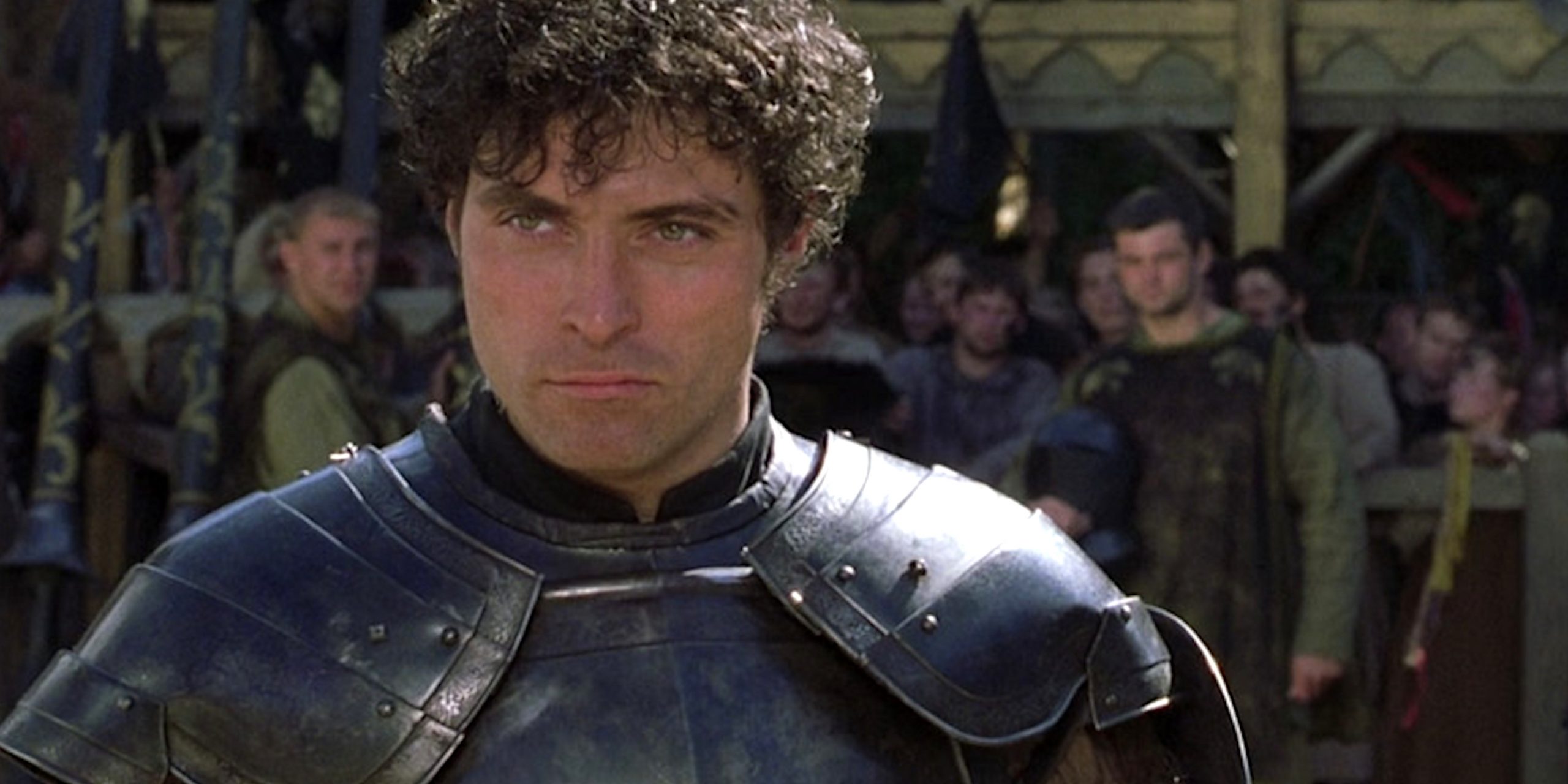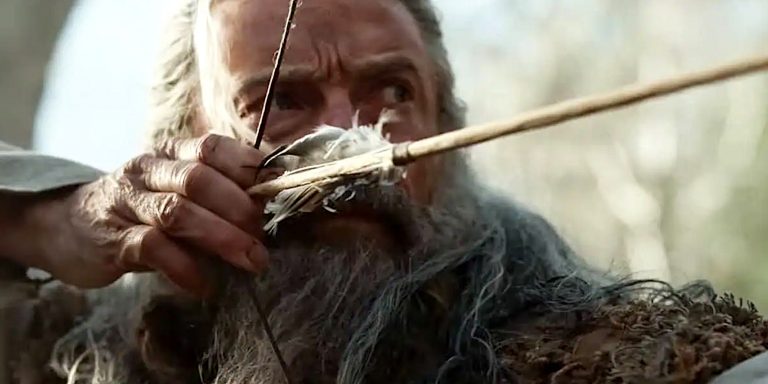
Analysing the Antagonist of A Knight’s Tale
Count Adhemar of Anjou is not a subtle villain. He is arrogant, ruthless, class-obsessed, and entirely unrepentant. But that is what makes him so effective. In A Knight’s Tale, a film built on anachronistic charm and underdog heroism, Adhemar serves as the ideal foil to William Thatcher. He represents everything the film’s protagonist fights against, both on the jousting field and within the rigid class structure of medieval Europe.
Cold Precision and Total Control
Adhemar is a master of control. From his icy demeanour to his calculated jousting technique, everything about him is precise. Rufus Sewell plays him with a constant undertone of disdain. He never raises his voice or descends into chaos. Instead, his cruelty is delivered with cold efficiency. That poise allows him to dominate both socially and competitively.
Where other villains might lash out, Adhemar tightens the leash. His expressions are subtle but cutting, and his words are chosen to wound. When he says to William, “You have been weighed, you have been measured, and you have been found wanting”, it lands not because of theatrics, but because of total confidence. It is this composed cruelty that makes him so dangerous.
A Symbol of Entitlement and Class Arrogance
Adhemar is not just a man. He is the living embodiment of noble privilege. He looks down on commoners, believes in divine birthright, and never questions his place in the world. The film doesn’t just pit William against a man with better armour or skill, but against an entire social system designed to keep him out.
Adhemar doesn’t hate William for personal reasons. He hates what William represents: social mobility, disruption, and merit over lineage. That ideological conflict gives the rivalry real weight. It makes Adhemar more than a cardboard cut-out; it makes him a gatekeeper of a world William seeks to break into.
Ruthlessness Without Redemption
Many modern villains are written with shades of grey. Adhemar is not. He has no redemptive arc, no moment of moral hesitation. He cheats. He schemes. He abandons Jocelyn the moment war offers more glory. And when William is imprisoned, Adhemar visits solely to taunt him. He wants to win, not just the tournament, but the right to say that he belongs and William never did.
This lack of redemption might seem shallow, but in the context of A Knight’s Tale, it serves a purpose. The film is about perseverance, loyalty, and challenging social constructs. A villain like Adhemar, who remains unrepentant to the end, gives the audience a solid anchor to push against. His defeat is not just satisfying because he loses; it is satisfying because he never believed he could.
Watch the clip:
The Final Joust: Why It Works
In the film’s final act, William rides into the arena without armour, exposed, battered, and nobly defiant. Adhemar, in contrast, is fully armoured, fully mounted, and utterly confident. The contrast is deliberate. Adhemar is still playing by the rules of privilege. William is not.
When Adhemar is unhorsed in the final joust, it is more than physical defeat. It is the collapse of an entire ideology. He lies in the dust, stunned, while William is cheered by knights, squires, and royals alike. It is theatrical, yes, but it’s earned. The villain has fallen not just from a horse, but from the pedestal he never imagined he could lose.
The Seven Swords Takeaway
Count Adhemar succeeds as a villain not because he is unpredictable or flamboyant, but because he is clear, consistent, and grounded in a believable worldview. He is the product of a society that worships birthright and order. And when that order is challenged, he fights not just to win, but to restore what he believes is natural.
In a film that embraces genre-mixing, modern soundtracks, and irreverent tone, Adhemar anchors the conflict in something real: the age-old struggle between those born to power and those who earn it. That is what makes him the perfect villain for A Knight’s Tale.










